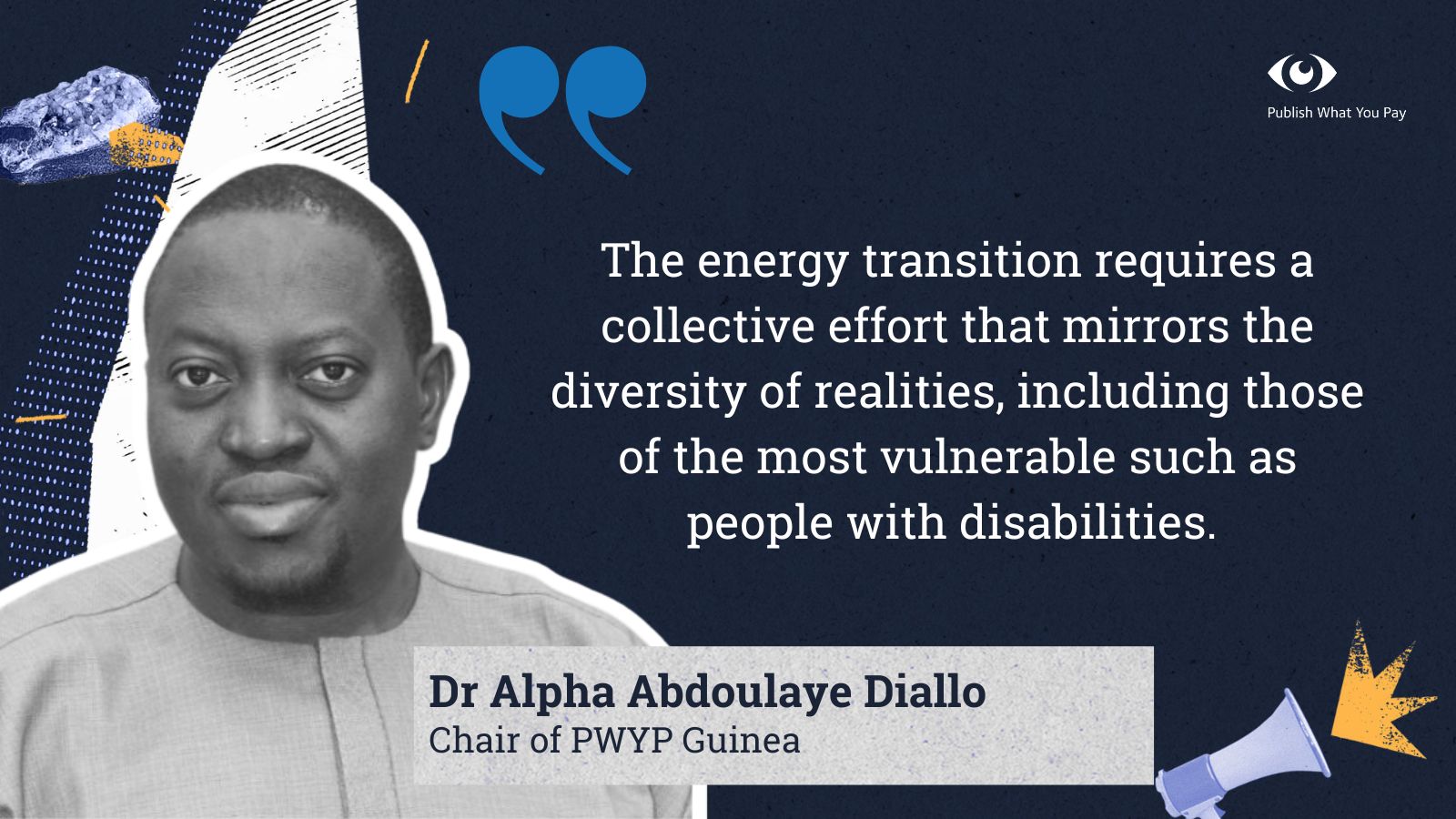The world is at a tipping point with climate change. The energy transition is not a distant ideal; it is a necessity that must unfold with urgency and intention. For this transition to succeed within the right timeframe and in the right way, it must be driven by a symphony of voices. It requires a collective effort that mirrors the diversity of realities, including those of the most vulnerable such as people with disabilities. Their lived experiences and challenges offer a unique lens through which we can carry stronger advocacy for urgent action and create solutions that work for all. It’s essential that they have the platform to advocate for themselves and that they are part of the conversation.
Energy Transition: An Unknown Topic
In Guinea, we aimed to make a significant impact on the energy transition. We wanted to identify where we could truly add value, relying on facts rather than assumptions. To do this, we launched a perception study to uncover how the energy transition was understood by Guineans. We specifically targeted mining regions and the city of Conakry. These regions are rich in critical minerals essential for renewable energy technologies, powering global efforts to combat climate change. Yet, the extraction of these resources can come with high risks including environmental degradation, water pollution, community displacement, and unsafe working conditions. This dual reality places mining regions at the intersection of opportunity and adversity, central to the energy transition while disproportionately bearing its burdens. Acknowledging this complexity, we chose mining regions as the focal point of our research.
Our study revealed a significant knowledge gap: most citizens, including civil society actors and even some government officials, lacked a clear understanding of the energy transition and its potential benefits. Bridging this gap became a critical first step in empowering communities to engage with the transition in a way that addresses their challenges and harnesses its opportunities.
Within mining communities, certain groups face heightened vulnerabilities, particularly people with disabilities. Extreme weather events, environmental degradation, and unsafe mining practices among other examples intensify barriers to mobility, safety, and resource access, deepening inequalities. Including people with disabilities in energy transition advocacy is essential, enabling them to shape solutions that directly improve their lives.
Empowering Communities for Change
We chose to work with the Guinean Federation for the Promotion of Associations of People with Disabilities due to its extensive network, expertise, and legitimacy in engaging with the disabled community across Guinea. As a national organisation, the federation provides a central, unifying platform for advocacy. Its broad reach extends beyond mining regions, allowing for the exchange of knowledge and resources throughout the country.
We decided to act, not just as advocates but as enablers. We trained the federation along with other local organisations, and even some members of parliament, so that they understand the energy transition in all its complexity and how it relates directly to the lives of disabled people. Participants left not just informed but inspired, ready to become advocates in their own right.
Together, we developed a collective national advocacy plan. The newly trained advocates trained others, reaching out to their communities, transforming conversations and amplifying voices long unheard. We launched radio broadcasts and social media campaigns to bring these ideas to even broader audiences, triggering a ripple effect of awareness.
Progress Towards an Inclusive Energy Transition in Guinea
Our efforts are already starting to bear fruit. Through this project and with all our partners, including organisations for disabled people, women and youth, we were the first to spark the public conversation in Guinea on energy transition.
The discussions we’ve initiated in local communities and the language used are beginning to echo in government circles. For the first time, the National Assembly is making clear recommendations in favour of an energy policy. The Minister of Energy recently presented perspectives for a diversified energy mix, focusing on hydroelectric and solar resources, an essential but still insufficient step forward.
Our advocacy work is now focused on bringing the conversation to the highest levels of government. Our primary goal is to see the Guinean government adopt a genuine energy transition strategy, supported by inclusive national policies and specific laws. This will include visits and consultations, importantly with groups of mixed representation, disabled people, youth, women, and civil society leaders, who can themselves directly engage with parliamentarians and other government actors, and push for real and timely change.
The Learnings: Empowering Communities to Lead!
Our ongoing journey in Guinea reveals critical lessons about driving an inclusive energy transition.
- Using evidence not assumptions: Through our perception study, we were able to pinpoint the area where we could add the most value. Instead of making assumptions, we gathered real evidence that informed our approach and allowed us to address specific needs for an even more significant impact.
- Knowledge transfer and empowerment: It is one thing for others to speak on behalf of vulnerable groups, but it’s entirely different when those groups speak for themselves. By equipping disabled communities with the tools and knowledge they need to advocate for their rights, we are empowering them to take ownership of their future. Even if PWYP Guinea shifts to focus on other priorities, partner organisations now have the skills and vision needed to continue the work.
We envision an energy transition where no one is left behind. Regardless of disability, gender, or social status, every Guinean citizen should have the opportunity and even the duty to contribute to a future that is equitable, sustainable, and just. We believe that by investing in local realities and supporting vulnerable groups, we can create a future where everyone finds their place. The hope for a better tomorrow is rooted in the power of collective action, and we are proud to be part of that change.











